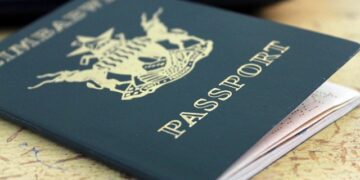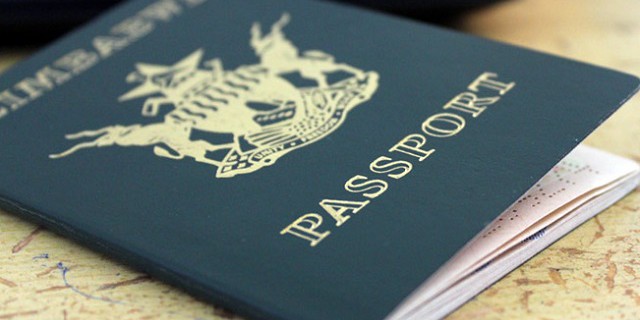By Enyichukwu Enemanna
Authorities in Zimbabwe say the collection of passport application fee in dollar would remain, ignoring public outcry for payment to be made in local currency despite the recent unveiling of the Zimbabwe Gold (ZiG) currency.
According to the Deputy Minister of Finance, Economic Development, and Investment Promotion, David Kuda Mnangagwa, the government is bound by contractual obligations with the company responsible for implementing the electronic passport system.
He said the contract agreement stipulates that passport fees must be settled in foreign currency.
The electronic passport application system was launched in December 2021, with regular passport fees set at US$150 and emergency passport fees at US$250.
A Lithuanian company, Garsu Pasaulis is partnering with the Zimbabwean government to see to its implementation.
Zimbabweans have expressed concern over the continuation of charges for passport fees in foreign currency, especially in light of the recent introduction of ZiG.
Zimbabweans have raised questions about the disparity between requiring foreign currency for passport fees while simultaneously cracking down on street forex traders.
In response to queries raised by Senator Meliwe Phuti in Parliament, Mnangagwa emphasized the complexity of the passport fee issue, citing contractual obligations with the investor as a determining factor. He highlighted ongoing discussions among relevant stakeholders to address this issue within the framework of ZiG.
Journalist Hopewell Chin’ono, a vocal critic of the government, disputed the government’s rationale, alleging that influential figures involved in the passport deal prioritize foreign currency over the local currency, despite claims that ZiG is backed by gold and foreign exchange reserves.
Chin’ono raised concerns about the practicality of requiring foreign currency for passport fees in an environment where US dollars are scarce, potentially driving people to resort to the black market.
While the government insists on contractual obligations as reasons for charges in foreign currency, critics question the feasibility and implications of maintaining foreign currency requirements for essential services like passport fees, particularly in the context of a new national currency.
On the contrary, some African countries have warned against the use of dollar to carry out transactions in their domains.
Last week, Nigerian authorities directed that foreign embassies in the country should stop transacting in foreign currency.
The country’s anti-corruption agency, the Economic and Financial Crimes Commission (EFCC) also mandated Nigerian missions outside the country to accept Naira in their financial businesses.
The Naira has faced fatal depreciation in recent times, linked to the use of dollars in conducting local business transactions and cryptocurrency.
Authorities had also recently placed a ban on Binance a leading cryptocurrency with its Executives in custody.




































